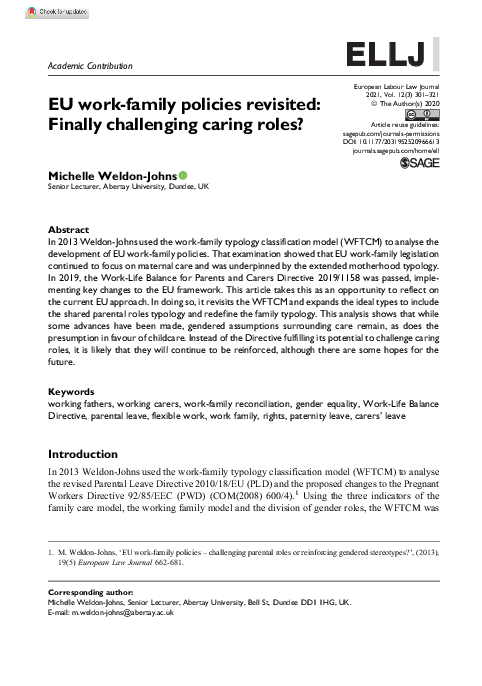EU work-family policies revisited: finally challenging caring roles?

2021
12
3
September
301-321
work-life balance ; gender equality ; parental leave ; paternity leave ; career break ; family ; labour flexibility ; EU Directive ; parent ; EU policy ; labour law
Law
https://doi.org/10.1177/2031952520966613
English
"In 2013 Weldon-Johns used the work-family typology classification model (WFTCM) to analyse the development of EU work-family policies. That examination showed that EU work-family legislation continued to focus on maternal care and was underpinned by the extended motherhood typology. In 2019, the Work-Life Balance for Parents and Carers Directive 2019/1158 was passed, implementing key changes to the EU framework. This article takes this as an opportunity to reflect on the current EU approach. In doing so, it revisits the WFTCM and expands the ideal types to include the shared parental roles typology and redefine the family typology. This analysis shows that while some advances have been made, gendered assumptions surrounding care remain, as does the presumption in favour of childcare. Instead of the Directive fulfilling its potential to challenge caring roles, it is likely that they will continue to be reinforced, although there are some hopes for the future."
Digital
The ETUI is co-funded by the European Union. Views and opinions expressed are however those of the author(s) only and do not necessarily reflect those of the European Union or the ETUI.